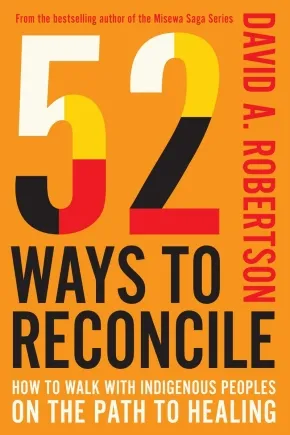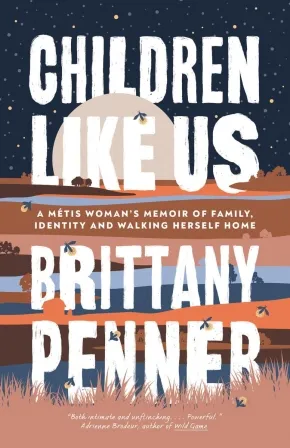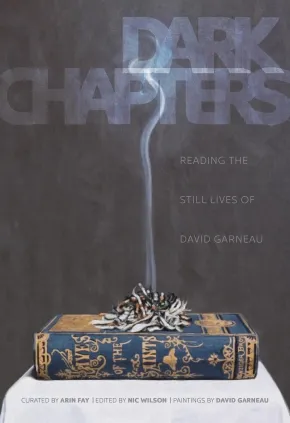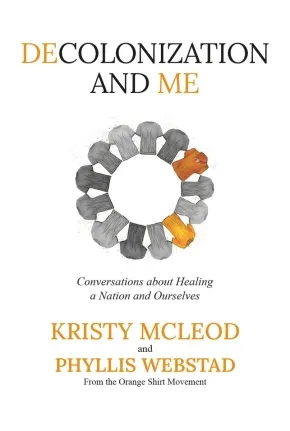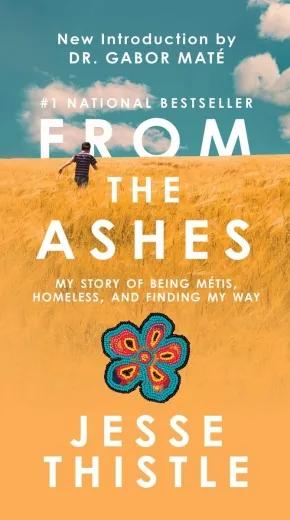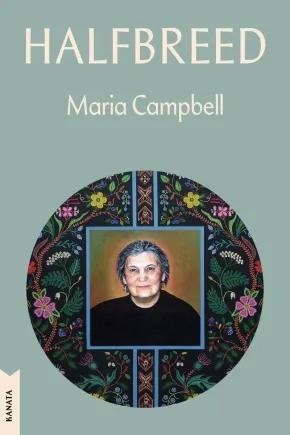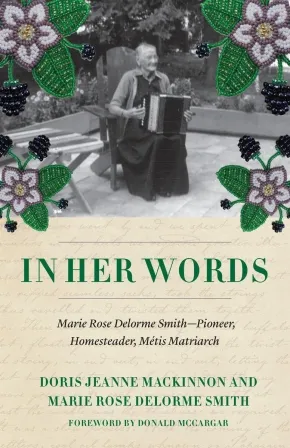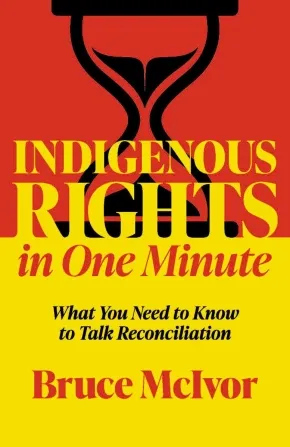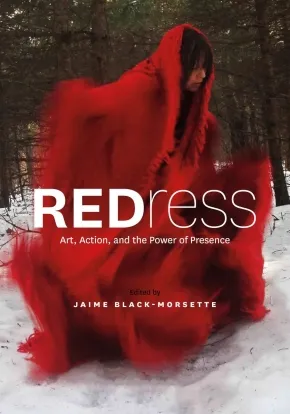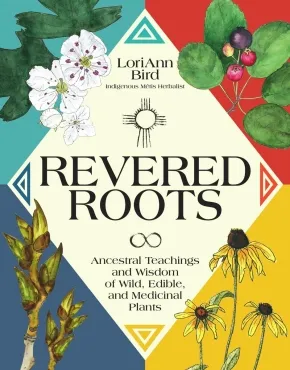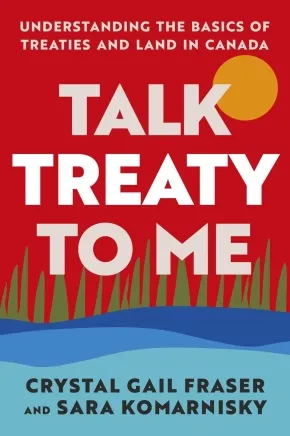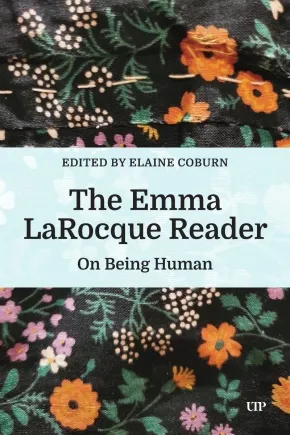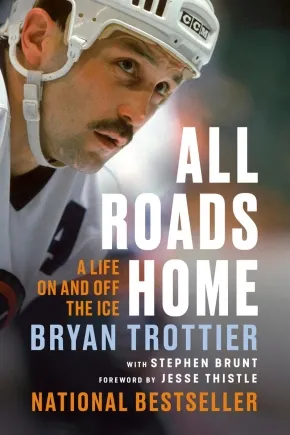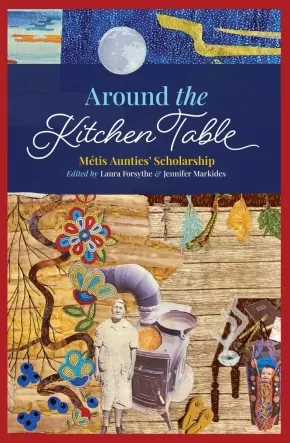
Métis
1
-
15
of
62 Results;
Sort By
Go To
of 5
52 Ways to Reconcile: How to Walk with Indigenous Peoples on the Path to Healing
$25.00
Format:
Hardcover
Text Content Territories:
Indigenous Canadian;
Reading Level: N/A
ISBN / Barcode: 9780771019357
Synopsis:
Synopsis:
From bestselling author of the Misewa Saga series David A. Robertson, this is the essential guide for all Canadians to understand how small and attainable acts towards reconciliation can make an enormous difference in our collective efforts to build a reconciled country.
52 Ways to Reconcile is an accessible, friendly guide for non-Indigenous people eager to learn, or Indigenous people eager to do more in our collective effort towards reconciliation, as people, and as a country. As much as non-Indigenous people want to walk the path of reconciliation, they often aren’t quite sure what to do, and they’re afraid of making mistakes. This book is the answer and the long overdue guide.
The idea of this book is simple: 52 small acts of reconciliation to consider, one per week, for an entire year. They’re all doable, and they’re all meaningful. All 52 steps take readers in the right direction, towards a healthier relationship between Indigenous and non-Indigenous people and a time when we are past trauma. By following these steps, we can live in stronger and healthier communities equally, and respectfully, together.
Additional Information
224 pages | 5.00" x 8.00" | Hardcover
Children Like Us: A Métis Woman's Memoir of Family, Identity and Walking Herself Home
$26.00
Format:
Paperback
Text Content Territories:
Indigenous Canadian; Métis;
Reading Level: N/A
ISBN / Barcode: 9780385688000
Synopsis:
Synopsis:
A Métis girl is adopted by a Mennonite family in this breathtaking memoir about family lost and found—for those who loved From the Ashes and Educated.
By the time Brittany Penner is seven years old, she has loved and lost twenty-one foster siblings who have come into her family and left—all of them Indigenous like her. "When will it be my turn?" she asks her mother time and time again. "When will I be taken away?" You won't be, she is told. You're adopted. You're here to stay. You're the lucky one.
On the day of her birth in 1989, near the end of the Sixties Scoop, Brittany was relinquished into the care of the government and adopted by a white Mennonite family in a small prairie town. Her name and where she came from are hidden from her; all she is told is that she is Métis. Her childhood is shaped by church, family, service and silence. Her family is continuously shifting as siblings arrive and depart, one by one. She knows that to stay, she has to force herself into the mold created for her. She must be obedient. Quiet. Good. No matter what.
Whenever she looks in the mirror, she searches her features, wondering if they've been passed down to her by her biological mother. She thinks, if she can find her mother, she'll find all the answers she's looking for. As Brittany moves into adulthood, she will uncover answers—but they will be more tangled than she could have imagined.
Children Like Us asks difficult questions about family, identity, belonging and cultural continuity. What happens when you find what you're looking for, but it can't offer you everything you need? How do you reckon with the truth of your own story when you've always been told you're lucky and should be grateful? What does it mean to belong when you feel torn between cultures? And how does a person learn to hold the pain and the grief, as well as the triumphs, the joys and the beauty, allowing none to eclipse the others?
Reviews
"Children Like Us is a luminous memoir about identity, loss and belonging. Adopted at birth by a white Mennonite family, Brittany Penner grows up straddling two worlds—one she knows and one that remains just out of reach. As she pieces together her origins, she reckons with the complexities of family, love and cultural displacement. Both intimate and unflinching, Children Like Us is a powerful exploration of what it means to know where you come from—and what it costs when that knowledge is withheld." —Adrienne Brodeur, nationally bestselling author of Wild Game
"An absolutely mesmerizing debut. It was a privilege to bear witness to Brittany Penner's story about intergenerational trauma, identity, and belonging. The kinds of complicated grief we so often experience in life are born out of the complexity of human relationships and our fierce ability to both hurt and heal one another. Penner explores this truth deftly, with wisdom, compassion and grace. I hope everyone reads this book." —Claire Bidwell Smith, author of The Rules of Inheritance
Additional Information
384 pages | 5.62" x 8.25" | Paperback
Dark Chapters: Reading the Still Lives of David Garneau
$32.95
Artists:
Editors:
● Arin Fay
Format:
Paperback
Text Content Territories:
Indigenous Canadian; Métis;
ISBN / Barcode: 9781779400536
Synopsis:
Synopsis:
A singular collection of responses to the still life paintings of acclaimed artist David Garneau
Dark Chapters brings together 17 poets, fiction writers, curators, and critics to engage with the works of David Garneau, the Governor General’s Award-winning Métis artist. Featuring paintings from Garneau’s still life series “Dark Chapters” alongside poetry, fiction, critical analysis, and autotheory, the book includes contributions from Fred Wah, Paul Seesequasis, Jesse Wente, Lillian Allen, Billy-Ray Belcourt, Larissa Lai, Susan Musgrave, and more.
A nod to the Reports of Truth and Reconciliation Commission, in which Justice Murray Sinclair describes the residential school system as “one of the darkest, most troubling chapters in our nation’s history,” Garneau’s still life paintings combine common objects (books, bones, teacups, mirrors) and less familiar ones (a Métis sash, a stone hammer, a braid of sweetgrass) to reflect the complexity of contemporary Indigenous experiences. Provocative titles like “Métis in the Academy” and “Smudge Before Reading” invite consideration of the mixed influences and loyalties faced by Indigenous students and scholars. Other paintings explore colonialism, vertical and lateral violence, Christian influence on traditional knowledge, and museum treatment of Indigenous belongings.
Rooted in Garneau’s life-long engagement at the intersections of visual art and writing, Dark Chapters presents a multifaceted reflection on the work of an inimitable, unparalleled artist.
Includes contributions from Arin Fay, Billy-Ray Belcourt, Cecily Nicholson, David Howes, Dick Averns, Fred Wah, Jeff Derksen, Jesse Wente, John G. Hampton, Larissa Lai, Lillian Allen, Paul Seesequasis, Peter Morin, Rita Bouvier, Susan Musgrave, Tarene Thomas, and Trevor Herriot.
Reviews
“A smart collection of art and essays, Dark Chapters activates deep conversations about art, resistance, and sovereignty. Visiting with paintings by Métis artist David Garneau, seventeen poets, curators, and thinkers offer complex provocations that trouble and activate new forms of communities and relationships.” —Dr. Carmen Robertson, Canada Research Chair in North American Indigenous Visual and Material Culture
“Provocative, probing, and precarious, Dark Chapters pairs the poetic, literary, political, and critical responses of seventeen authors with the deceptively uncluttered yet gravid and combustible still lifes of David Garneau. This collection of pictures and words undertakes a necessary examination of the uncanny oppositions and disquieting literal and symbolic inversions that signify and animate the Indigenous history of Canada.” —Bonnie Devine
“Dark Chapters is a lesson in relationality and innovation. Built through conversations between Garneau’s work and artists/writers, the intergenerational contributors to this book come together in relation to Garneau and his still lives to explore the important contribution the artist has made to Canadian, Indigenous, and International art.” —Erin Sutherland
Educator Information
Table of Contents
Foreword
Nic Wilson
Still Life
John G. Hampton
Stone and Rock: I Have Failed You
Peter Morin
Wander Carried
Cecily Nicholson
On Kinship
Paul Seesequasis
Learning from Indigenous Academic Solidarity
Jeff Derksen
Knock Knock
Lillian Allen
Unsettling the Colonial Gaze
Trevor Herriot
Smudge Before Reading and The Land Does Not Forget
Tarene Thomas
Confession (after David Garneau) by Rita Bouvier
Fuse and Formal and Informal Education
Jesse Wente
The Problem with Pleasure
Billy-Ray Belcourt
Métis Realism: On the Materiality of Smoke and Relationality of Rocks
David Howes
Allies (after Hsieh and Montano)
Larissa Lai
Ally Tear Reliquary
Arin Fay
Understanding Attempted Enlightening: Between Language as Power…and Light as Life
Dick Averns
Spine
Fred Wah
The Resting Heartbeat of a Wounded Bird
Susan Musgrave
Gallery
About the Artist
About the Curator
About the Editor
About the Contributors
List of Artworks
Index
Additional Information
160 pages | 6.50" x 9.50" | 58 colour illustrations | Paperback
Decolonization and Me: Conversations about Healing a Nation and Ourselves
$30.99
Text Content Territories:
Indigenous Canadian; First Nations; Salish; Interior Salish; Secwepemc (Shuswap); Stswecem'c Xgat'tem; Métis;
Reading Level: N/A
ISBN / Barcode: 9781778540684
Synopsis:
Synopsis:
This book invites readers to step into a space of reflection on your personal relationship with truth, reconciliation, and Orange Shirt Day.
Written in response to the increase of residential school denialism, Phyllis Webstad and Kristy McLeod have collaborated to create a book that encourages readers to face their own biases. This book challenges readers through a series of sensitive conversations that explore decolonization, Indigenization, healing, and every person’s individual responsibility to truth and reconciliation. Centered around the Orange Shirt Day movement, and a National Day for Truth and Reconciliation, these conversations encourage readers to unpack and reckon with denialism, biases, privilege, and the journey forward, on both a personal and national level.
Within each chapter, Phyllis Webstad draws on her decade of experience (sharing her Orange Shirt Story on a global level and advocating for the rights of Indigenous Peoples) to offer insights on these topics and stories from her personal journey, which co-author and Métis scholar, Kristy McLeod, helps readers to further navigate. Each section includes real denialist comments taken from social media and Kristy's analysis and response to them. Through empathy-driven truth-telling, this book offers an opportunity to witness, reflect, heal, and be intentional about the seeds we hope to plant for the future, together.
Additional Information
350 pages | 5.70" x 8.25" | Hardcover
Elements of Indigenous Style: A Guide for Writing By and About Indigenous Peoples - 2nd Edition
$27.95
Editors:
Format:
Paperback
Text Content Territories:
Indigenous Canadian;
Reading Level: N/A
ISBN / Barcode: 9781550599459
Synopsis:
Synopsis:
The groundbreaking Indigenous style guide every writer needs.
The first published guide to common questions and issues of Indigenous style and process for those who work in words and other media is back in an updated new edition. This trusted resource offers crucial guidance to anyone who works in words or other media on how to work accurately, collaboratively, and ethically on projects involving Indigenous Peoples.
Editor Warren Cariou (Métis) and contributing editors Jordan Abel (Nisga’a), Lorena Fontaine (Cree-Anishinaabe), and Deanna Reder (Cree-Métis) continue the conversation started by the late Gregory Younging in his foundational first edition. This second conversation reflects changes in the publishing industry, Indigenous-led best practices, and society at large, including new chapters on author-editor relationships, identity and community affiliation, Two-Spirit and Indigiqueer identities, sensitivity reading, emerging issues in the digital world, and more.
This guide features:
- Twenty-two succinct style principles.
- Advice on culturally appropriate publishing practices, including how to collaborate with Indigenous Peoples, when and how to seek the advice of Elders, and how to respect Indigenous Oral Traditions and Traditional Knowledge.
- Terminology to use and to avoid.
- Advice on specific editing issues, such as biased language, capitalization, citation, accurately representing Indigenous languages, and quoting from historical sources and archives.
- Examples of projects that illustrate best practices.
Additional Information
208 pages | 5.50" x 7.50" | Paperback
From the Ashes: My Story of Being Métis, Homeless, and Finding My Way (PB)
$13.99
Format:
Paperback
Text Content Territories:
Indigenous Canadian; First Nations; Cree (Nehiyawak); Métis;
Reading Level: N/A
ISBN / Barcode: 9781668213728
Synopsis:
Synopsis:
In this extraordinary and inspiring debut memoir, Jesse Thistle, once a high school dropout and now a rising Indigenous scholar, chronicles his life on the streets and how he overcame trauma and addiction to discover the truth about who he is.
If I can just make it to the next minute... then I might have a chance to live; I might have a chance to be something more than just a struggling crackhead.
From the Ashes is a remarkable memoir about hope and resilience, and a revelatory look into the life of a Métis-Cree man who refused to give up.
Abandoned by his parents as a toddler, Jesse Thistle briefly found himself in the foster-care system with his two brothers, cut off from all they had known. Eventually the children landed in the home of their paternal grandparents, but their tough-love attitudes meant conflicts became commonplace. And the ghost of Jesse’s drug-addicted father haunted the halls of the house and the memories of every family member. Struggling, Jesse succumbed to a self-destructive cycle of drug and alcohol addiction and petty crime, spending more than a decade on and off the streets, often homeless. One day, he finally realized he would die unless he turned his life around.
In this heartwarming and heartbreaking memoir, Jesse Thistle writes honestly and fearlessly about his painful experiences with abuse, uncovering the truth about his parents, and how he found his way back into the circle of his Indigenous culture and family through education.
An eloquent exploration of what it means to live in a world surrounded by prejudice and racism and to be cast adrift, From the Ashes is, in the end, about how love and support can help one find happiness despite the odds.
Awards
- 2020 Indigenous Voices Awards Winner for Published Prose in English
- Winner, Kobo Emerging Writer Prize Nonfiction
- Winner, High Plains Book Awards
- An Indigo Book of the Year
Reviews
“From the Ashes hits you like a punch in the gut. It’s an unflinching, heartrending and beautifully written story of survival against seemingly impossible odds. But it’s also a book that should make you furious. Thistle paints a vivid portrait of a country seemingly incapable of doing right by Indigenous youth or by those struggling with homelessness, addiction and intergenerational trauma. That he survived to tell this story is truly a miracle. Still, one question haunts me after finishing this powerful and devastating book: How do we ensure that the next generation isn’t forced to navigate a broken system that takes their lives for granted and fails them at every turn? My greatest hope, then, is that From the Ashes will be the wakeup call Canada needs.” — IAN MOSBY, historian and author of Food Will Win the War
Educator Information
Caution: Deals with mature subject matter.
Additional Information
368 pages | 6.00" x 9.00"
Halfbreed: Kanata Classics Edition
$22.00
Format:
Paperback
Text Content Territories:
Indigenous Canadian; Métis;
Reading Level: N/A
ISBN / Barcode: 9780771026928
Synopsis:
Synopsis:
A new, fully restored edition of the essential Canadian classic.
An unflinchingly honest memoir of her experience as a Métis woman in Canada, Maria Campbell's Halfbreed depicts the realities that she endured and, above all, overcame. Maria was born in Northern Saskatchewan, her father the grandson of a Scottish businessman and Métis woman--a niece of Gabriel Dumont whose family fought alongside Riel and Dumont in the 1885 Rebellion; her mother the daughter of a Cree woman and French-American man. This extraordinary account, originally published in 1973, bravely explores the poverty, oppression, alcoholism, addiction, and tragedy Maria endured throughout her childhood and into her early adult life, underscored by living in the margins of a country pervaded by hatred, discrimination, and mistrust. Laced with spare moments of love and joy, this is a memoir of family ties and finding an identity in a heritage that is neither wholly Indigenous or Anglo; of strength and resilience; of indominatable spirit.
This edition of Halfbreed includes a new introduction written by Indigenous (Métis) scholar Dr. Kim Anderson detailing the extraordinary work that Maria has been doing since its original publication 46 years ago, and an afterword by the author looking at what has changed, and also what has not, for Indigenous people in Canada today. Restored are the recently discovered missing pages from the original text of this groundbreaking and significant work.
Educator & Series Information
This book is part of the Kanata Classics series, which celebrates timeless books that reflect the rich and diverse range of voices in Canadian literature.
Additional Information
224 pages | 5.50" x 8.23" | Paperback
In Her Words: Marie Rose Delorme Smith—Pioneer, Homesteader, Métis Matriarch
$29.95
Format:
Paperback
Text Content Territories:
Indigenous Canadian; Métis;
Reading Level: N/A
ISBN / Barcode: 9781772035209
Synopsis:
Synopsis:
Part historical biography, part compilation of the written works of Mary Rose Delorme Smith (1861–1960), a prolific and accomplished Métis woman.
Born into a prominent fur-trading family and remembered as a community builder and rancher, Marie Rose Delorme Smith (1861–1960) is seldom recognized as a writer and chronicler of Métis and Prairie history. Fluent in French, English, and likely Michif, Delorme Smith recorded a wealth of written records and stories throughout her long life, in the form of letters, published articles, unpublished manuscripts, and personal documents.
Donated to public archives following her death, these written works garnered some interest among scholars and biographers over the years, as prominent Indigenous women gradually found a place in the histories they had been left out of for generations. Delorme Smith became the subject of biographies and scholarly research, and she was finally recognized as a “National Historic Person” by the Canadian government in 2022. However, the recognition bestowed upon her rarely highlighted her own words, which reveal so much about her life, Métis history, and Prairie life in the late nineteenth and early twentieth centuries.
For the first time, historian and biographer Doris Jeanne MacKinnon presents an extensive array of Delorme Smith’s writings, preserved verbatim, and puts them in historical and social context. This fascinating collection of documents from a bygone era reveals the strength, intellect, and leadership of a fascinating Métis martriarch.
Additional Information
276 pages | 5.50" x 8.50" | b&w photographs | Paperback
Indigenous Rights in One Minute: What You Need to Know to Talk Reconciliation
$22.95
Format:
Paperback
Text Content Territories:
Indigenous Canadian;
Reading Level: N/A
ISBN / Barcode: 9780889714885
Synopsis:
Synopsis:
Internationally renowned as an expert in Aboriginal law and an advocate for Indigenous rights, Bruce McIvor delivers concise, essential information for Canadians committed to truth and reconciliation.
A shortage of trustworthy information continues to frustrate Canadians with best intentions to fulfill Canada’s commitment to reconciliation with Indigenous Peoples. To meet this demand, lawyer and historian Bruce McIvor provides concise, plain answers to 100 essential questions being asked by Canadians across the country.
During his nearly three decades advocating for Indigenous rights and teaching Aboriginal law, McIvor has recorded the fundamental questions that Canadians from all corners of society have asked to advance reconciliation: Why do Indigenous people have special rights? What is the Doctrine of Discovery? Who are the Métis? Why was the Calder decision important? What is reconciliation? McIvor supplies the answers Canadians are looking for by scrapping the technical language that confuses the issues, and speaks directly to everyone looking for straight answers. Throughout, McIvor shares his perspective on why reconciliation as envisioned by the courts and Canadian governments frustrates Indigenous people and what needs to change to overcome the impasse. McIvor’s explanations of complex legal issues demonstrate a unique mix of a deep knowledge of the law, the ability to write clearly and concisely, practical experience from the frontlines of advocating for First Nations in courtrooms and at negotiation tables across the country, and a profound passion for justice rooted in his work and personal history.
To ensure the country’s reconciliation project progresses from rhetoric to reality, ordinary Canadians need straightforward answers to fundamental questions. McIvor provides the answers and context to support a thoughtful and respectful national conversation about reconciliation and the fulfillment of Canada’s commitment to a better future for Indigenous people.
Additional Information
208 pages | 5.50" x 8.50" | 25 colour and b&w photographs | Paperback
REDress: Art, Action, and the Power of Presence
$38.00
Editors:
Format:
Paperback
Text Content Territories:
Indigenous Canadian; First Nations; Inuit; Métis;
ISBN / Barcode: 9781774921388
Synopsis:
Synopsis:
A powerful anthology uniting the voices of Indigenous women, Elders, grassroots community activists, artists, academics, and family members affected by the tragedy of Missing and Murdered Indigenous Women, Girls, and Two-Spirit people from across Turtle Island.
In 2010, Métis artist Jaime Black-Morsette created the REDress Project—an art installation consisting of placing red dresses in public spaces as a call for justice for Missing and Murdered Indigenous Women, Girls, and Two-Spirit people (MMIWG2S). Symbolizing both absence and presence, the red dresses ignite a reclamation of voice and place for MMIWG2S. Fifteen years later, the symbol of the empty red dress endures as families continue to call for action.
In this anthology, Jaime Black-Morsette shares her own intimate stories and memories of the REDress Project along with the voices of Indigenous women, Elders, grassroots community activists, artists, academics, and family members affected by this tragedy. Together they use the power of their collective voice to not only call for justice for MMIWG2S, but honour Indigenous women as keepers and protectors of land, culture, and community across Turtle Island.
Reviews
“REDress is a must-read for anyone who seeks to truly understand the hearts of those most impacted by MMIWG2S. For allies and interested citizens, this anthology shows how Canada emboldened and fostered a society to inflict genocide against Indigenous women, girls, and Two-Spirited and transgendered relatives.”—Sheila North, Former Grand Chief, Creator of hashtag #MMIW, Mother and Kookom
“REDress is a love offering to MMIWG2S and those who are intimately impacted by this epidemic.”—Cathy Mattes, curator, writer, and Associate Professor in History of Art at the University of Winnipeg
"This is a moving look at how women in indigenous communities are using art and activism to keep the the issue at the forefront, despite the lack of progress in solving or preventing the crimes.... A content warning signals that the book contains language concerning violence against women. I’d offer this to activist artists or anyone interested in justice for indigenous communities, in high school and up." - Youth Services Book Review - Stephanie Tournas, Retired librarian, Cambridge, MA
Educator Information
Content Warning: This book's content deals with violence against Indigenous women, girls, and Two-Spirit people; genocide; death; intergenerational trauma; suicide; and residential schools.
Big Ideas: Diverse and Inclusive Representation: Identity; Land-Based or Place-Based Learning; Social-Emotional Learning: Death, Grief, Bereavement; Social-Emotional Learning: Self Expression, Creative Writing, Art; Social Justice: Citizenship and Social Responsibility; Social Justice: Impacts of Colonization and Colonialism; Social Justice: MMIWG2S; Social Justice: Prejudice and Racism.
Edited by: Jaime Black-Morsette
Contributions by: KC Adams, Mackenzie Anderson Linklater, Marjorie Beaucage, Christi Belcourt, Judy Da Silva, Karine Duhamel, Deantha Edmunds, Cambria Harris, Jaimie Isaac, Casey Koyczan, Crystal Lepscier, Lee-Ann Martin, Diane Maytwayashing, Cathy Merrick, Sherry Farrell Racette, Gladys Radek, Zoey Roy, Jennifer Lee Smith, and Patti Beardy.
Additional Information
168 pages | 7.00" x 10.00" | Paperback
Revered Roots: Ancestral Teachings and Wisdom of Wild, Edible, and Medicinal Plants
$32.99
Format:
Hardcover
Text Content Territories:
Indigenous Canadian; Métis;
Reading Level: N/A
ISBN / Barcode: 9780760393253
Synopsis:
“Revered Roots is a profound journey that gracefully and colorfully intertwines Indigenous wisdom with practical plant knowledge, offering a guide to reconnect with Nature’s green gifts. LoriAnn's heartfelt teachings inspire readers to honor and deepen their sacred relationship with the Earth.”—Dr. Kelly Ablard, Founder and CEO, Airmid Institute
Synopsis:
With Indigenous Métis herbalist LoriAnn Bird as your guide, connect with the ancestral wisdom of over 90 wild edible and medicinal plants from across North America.
A purposeful and powerful reference to the lessons, nourishment, healing, and history of our “plant teachers,” Revered Roots shares guidance on exploring, gathering, and reclaiming these long-revered plants as food and medicine. Separated into two sections, LoriAnn first reveals her own journey to understanding and respecting our plant elders. She offers teachings and lessons about remembering our relationship to the plants around us and our responsibility to the earth that sustains us.
The second part of the book is filled with insightful illustrated plant profiles detailing the identification, uses, and Indigenous folklore of some of the continent’s most treasured ancestral plants. Included are edible and medicinal bark, berries, and buds from trees and shrubs, as well as foliage, flowers, and fronds from herbs, “weeds,” and wildflowers; some native to the continent, others introduced generations ago.
Learn about the gifts our Rooted Nation of plants has to offer, including:
- Evergreen tips from spruces, pines, and firs
- Hawthorn berries, leaves, and flowers
- Plantain seeds and foliage
- Oswego tea leaves and blooms
- Slippery elm bark
- Motherwort flowers, stems, and leaves
- Black cohosh roots and rhizomes
- Marshmallow root
- Cottonwood buds and bark
- Plus dozens more
Reclaiming our natural rhythms and connections to the earth we walk on is essential to our health and well-being, both as individuals and as a community. One simple way to do that is by appreciating, respecting, and seeking to understand the plants around us.
Reviews
“With elegant reverence, LoriAnn Bird weaves connections among ancestral herbalist teachings from several lineages. She invites us into our own personal journey with plant medicine, giving us lessons on how to respect and honor the power of plants and their human knowledge keepers. She carefully and lovingly attributes each piece of teaching to its source. This book is a powerful legacy that we need more than ever at this time of healing and reconciliation. May its words fly into the world and land softly in the hearts of all who need them.”—Lori Weidenhammer, author of Victory Gardens for Bees: A DIY Guide to Saving the Bees
“Revered Roots is truly an essential work of art that imparts the sacredness of each plant, in each harvesting step and in the interspecies relationships with all of life. The authentic and grounded nature of LoriAnn Bird comes through the pages to connect us with a sense of belonging and reverence.”—Katrina Blair, founder of Turtle Lake Refuge; author of The Wild Wisdom of Weeds
“LoriAnn Bird, in her book Revered Roots, creates a beautiful story about our plant relatives with our history woven between the leaves of each page. She highlights each being and allows them to tell their story, including who they are, their benefits, uses, ways to eat, look-alikes, and what makes them unique. It's like looking at an old family album and finally knowing who each person is and what their spirit has to offer the world. The book, complete with information about our relatives, wrapped its warm arms around me as I nestled in to read each page, excited to learn more about family. LoriAnn’s voice provides a continuous honoring of our ancestors, our brilliance, and our resilience.”—Jenna Jasek, Shuswap (Kenpesq't) Band member, Director of Indigenous Learning, The Outdoor Learning School
“Revered Roots is a profound journey that gracefully and colorfully intertwines Indigenous wisdom with practical plant knowledge, offering a guide to reconnect with Nature’s green gifts. LoriAnn's heartfelt teachings inspire readers to honor and deepen their sacred relationship with the Earth.”—Dr. Kelly Ablard, Founder and CEO, Airmid Institute
“LoriAnn Bird weaves stories of plants into a tapestry of vivid imagery and teachings, allowing us to experience earth medicine in a way we never have before. Like a family gathered around the table exchanging stories of cherished ones, Lori Ann’s plant musings draw us into an intimate connection with our More-Than-Human Kin. From a small moment in a back alley in East Vancouver to hundreds of years of history from around the world, Revered Roots feels like an equal blend of encyclopedia, history book, and love letter. Get to know plants in a truly profound way through the words of a master storyteller, sister, friend, mother, and plant protector.”—Stephanie Rose, founder of Garden Therapy; author of Garden Alchemy and The Regenerative Garden
“This is a beautiful book on every level; the gorgeous drawings and painting of plants, the photography and images throughout, but also the words and the feelings on each page. Intensely moving and remarkably practical, deeply personal and filled with worldly wisdom, this book offers the reader a glimpse into a whole new way of seeing the nature. With a plant centered focus, through a biophilia lens, the author invites us to re-evaluate and re-vision our own relationships with plants and the natural world. This book is destined to be a classic.”—Chanchal Cabrera MSc, FNIMH, Medical Herbalist; Horticulture Therapist; author of Holistic Cancer Care
“LoriAnn has put a lifetime of collected knowledge into a work that connects people to plants in ways both honorable and honest. Revered Roots extols both the practical and sacred uses of the plants we see around us, while also nurturing our respect for our More-Than-Human Kin and our responsibility to the greater world. It has been a pleasure to be a teacher and herbal mentor to LoriAnn for many years.”—Don Ollsin, Master Herbalist; Conscious Spiritual Elder, Alchemy of Aging; author of Pathways to Healing
Additional Information
240 pages | 8.00" x 9.55" | Hardcover
Talk Treaty to Me: Understanding the Basics of Treaties and Land in Canada
$22.99
Format:
Paperback
Text Content Territories:
Indigenous Canadian;
Reading Level: N/A
ISBN / Barcode: 9781443471169
Synopsis:
Synopsis:
An essential and easy-to-read guide to treaties, Indigenous sovereignty, and land for all Canadians
Treaties cover much of Canada. Some were established thousands of years ago, with land and animals, and others date back to the time when Europeans first arrived in North America. These agreements make it possible for all of us to live, work, play, and profit on these lands. Additionally, treaties have profoundly shaped the relationship between Indigenous and non-Indigenous people. In Talk Treaty to Me, Crystal Gail Fraser and Sara Komarnisky untangle the complexities of treaties and set a path forward for greater understanding of all our roles, rights, and responsibilities. In this accessible, clear, and concise book, they discuss:
· Treaties among and between Indigenous Peoples
· The history of treaty-making between Indigenous Peoples and Britain, then Canada, from the very beginning to the present day
· Concepts like Métis scrip, modern land claims, Indigenous sovereignty, and unceded territory
· The (dis)honouring of treaties and the role of Canadian settler colonialism
· How the creation of Canadian borders interrupts Indigenous sovereignty and nationhood
· Important insights from gendered and queer perspectives on treaty and land
· The politics of land acknowledgements
· Reconciliation and Land Back movements
And more.
With a quick-reference timeline, maps, and black-and-white photographs throughout, Talk Treaty to Me concludes with a call to action and specific, tangible steps that all of us can take every day to support reconciliation.
Additional Information
256 pages | 5.25" x 8.00" | 40 b&w photos, spot illustrations & maps | Paperback
The Emma LaRocque Reader: On Being Human
$39.95
Editors:
Format:
Paperback
Text Content Territories:
Indigenous Canadian; Métis;
Reading Level: N/A
ISBN / Barcode: 9781487551889
Synopsis:
Synopsis:
Emma LaRocque was born in 1949 in Lac La Biche into a Cree-speaking Métis family. She grew up in a one-room, kerosene-lit log cabin built by her father. At the age of nine, she fought her parents to attend school, where she encountered English and the colonizer’s harmful stereotypes of Indigenous peoples. Confronting the contradictions of colonialism sparked her journey as a writer and scholar, as she sought to understand the dissonance between her identity and the world around her.
The Emma LaRocque Reader is a comprehensive collection of her most significant writings, poetry and prose, offering an intimate window into the mind of one of Canada’s foremost Indigenous scholars. Through her work, LaRocque provides profound insights into the intersections of colonialism, sexism, and racism in Canada, while also critically celebrating the beauty of her community and culture. In the afterword, she reflects on fifty years of challenging the colonial enterprise. A vital contribution to postcolonial literature, The Emma LaRocque Reader intertwines the personal and the political to explore what it means to be human, offering a powerful testament to Indigenous resistance, resilience, and vision.
This collection brings together the works of Métis scholar Emma LaRocque, offering a half-century of her poetry and prose, and shedding new light on Canada, colonialism, and Indigenous resistance.
Educator Information
Chapters
Foreword by Armand Ruffo
Preface by Elaine Coburn
Acknowledgments by Emma LaRocque
Acknowledgments of Permissions to Reprint
Introduction by Elaine Coburn
1975 A Personal Essay on Poverty (Excerpt from Defeathering the Indian)
1983 The Métis in English Canadian Literature
1988 On the Ethics of Publishing Historical Documents
1989 Racism Runs through Canadian Society
1990 Preface: Here Are Our Voices: Who Will Hear?
1990 Geese (poem)
1990 Nostalgia (poem)
1990 “Progress” (poem)
1990 The Red in Winter (poem)
1990 Incongruence (poem)
1990 Loneliness (poem)
1990 Beggar (poem)
1990 Tides, Towns, and Trains
1992 My Hometown, Northern Canada, South Africa (poem)
1993 Violence in Aboriginal Communities
1994 Long Way from Home (poem)
1996 The Colonization of a Native Woman Scholar
1996 When the Other Is Me: Native Writers Confronting Canadian Literature
2001 Native Identity and the Métis: Otehpayimsuak Peoples
2001 From the Land to the Classroom
2004 When the Wild West Is Me
2006 Sweeping (poem)
2006 Sources of Inspiration: The Birth of "For the Love of Words": Aboriginal Writers of Canada
2007 Métis and Feminist
2009 Reflections on Cultural Continuity through Aboriginal Women’s Writings
2010 Native Writers Reconstruct: Pushing Paradigms
2013 For the Love of Place – Not Just Any Place: Selected Métis Writings
2015 “Resist No Longer”: Reflections on Resistance Writing and Teaching
2016 Contemporary Métis Literature: Resistance, Roots, Innovation
2016 Colonialism Lived
2017 Powerlines (poem)
2022 Wehsakehcha, Comics, Shakespeare, and the Dictionary
2023 Afterword
Index
Additional Information
348 pages | 6.00" x 9.00" | Paperback
All Roads Home: A Life On and Off the Ice (PB)
$24.00
Format:
Paperback
Text Content Territories:
Indigenous Canadian; First Nations; Anishinaabeg; Ojibway; Cree (Nehiyawak); Métis;
Reading Level: N/A
ISBN / Barcode: 9780771084492
Synopsis:
Synopsis:
A poignant and inspiring memoir of the people and challenges that shaped the life and career of Canada's most decorated Indigenous athlete.
Over the course of his incredible career, Bryan Trottier set a new standard of hockey excellence. A seven-time Stanley Cup champion (four with the New York Islanders, two with the Pittsburgh Penguins, and one as an assistant coach with the Colorado Avalanche), Trottier won countless awards and is a member of the Hockey Hall of Fame and the Canadian Sports Hall of Fame. In 2017, he was named one of the NHL's Top 100 Players of All Time.
Trottier grew up in Val Marie, Saskatchewan, the son of a Cree/Chippewa/Metis father and an Irish-Canadian mother. All Roads Home offers a poignant, funny, wise, and inspiring look at his coming of age, both on and off the ice. It is a unique memoir in which Trottier shares stories about family, friends, teammates, and coaches, the lessons that he has learned from them, and the profound impact they have had in shaping the person he has become.
Some of the incredible characters featured in the book include Trottier's father Buzz; legendary Islanders coach Al Arbour; teammates Clark Gillies and Mike Bossy; and the Penguins' Mario Lemieux, to name but a few. He'll also talk about the high school English teacher and guidance counsellor who helped him develop self-confidence and encouraged him as a writer: Governor General's Award–winning poet, Lorna Crozier.
All Roads Home also includes a Foreword from bestselling author Jesse Thistle (From the Ashes) and two very special Afterwords: one from Trottier's daughter, Lindsy Ruthven, and the other from his life-long friend, beloved hockey great Dave "Tiger" Williams.
Additional Information
304 pages | 5.16" x 7.95" | Paperback
Around the Kitchen Table: Métis Aunties' Scholarship
$27.95
Editors:
Format:
Paperback
Text Content Territories:
Indigenous Canadian; Métis;
Reading Level: N/A
ISBN / Barcode: 9781772840735
Synopsis:
Synopsis:
Honouring the scholarship of Métis matriarchs
While surveying the field of Indigenous studies, Laura Forsythe and Jennifer Markides recognized a critical need for not only a Métis-focused volume, but one focused on the contributions of Métis women. To address this need, they brought together work by new and established scholars, artists, storytellers, and community leaders that reflects the diversity of research created by Métis women as it is lived, considered, conceptualized, and re-imagined.
With writing by Emma LaRocque and other pioneers of Métis studies, Around the Kitchen Table looks beyond the patriarchy to document and celebrate the scholarship of Métis women. Focusing on experiences in post-secondary environments, this collection necessarily traverses a range of methodologies. Spanning disciplines of social work, education, history, health care, urban studies, sociology, archaeology, and governance, contributors bring their own stories to explorations of spirituality, material culture, colonialism, land-based education, sexuality, language, and representation. The result is an expansive, heartfelt, and accessible "community of Métis thought," as articulated by Markides.
Reverent and revelatory, this collection centres the strong aunties and grandmothers who have shaped Métis communities, culture, and identities with teachings shared in classrooms, auditoriums, and around the kitchen table.
Reviews
"Inspiring, healing, and future-facing, this long overdue book gives us valuable new insights into the histories and identities of Métis people." — Kim Anderson
"Around the Kitchen Table is an exciting and thought-provoking contribution to the fields of Métis Studies and Indigenous feminism. Reading this book is like sitting down to visit with a strong cup of tea and your favourite aunties. It will inspire readers to think about matriarchy in new and exciting ways, teaching us what it means to be Métis women, good relatives, and innovative scholars." — Cheryl Troupe
Educator Information
Other contributors: Jennifer Adese, Christi Belcourt, Hannah Bouvier, Rita Bouvier, Vicki Bouvier, Robline Davey, Leah Marie Dorion, Marilyn Dumont, Nicki Ferland, Chantal Fiola, Lucy Fowler, Chelsea Gabel, Janice Cindy Gaudet, Emily Haines, Shalene Jobin, Emma LaRocque, Amanda LaVallee, Lynn Lavallee, Avery Letendre, Kirsten Lindquist, Yvonne Poitras Pratt, Angela Rancourt, Lisa Shepherd, Allyson Stevenson, Kisha Supernant, Caroline Tait, Angie Tucker, Dawn Wambold
Table of Contents
Contributors
Foreword by Caroline Tait
The Work of Métis Women: An Introduction – Jennifer Markides
Part One: Identity
1. Brown Names – Marilyn Dumont
2. We Know Ourselves – Lisa Shepherd
3. Kaa-waakohtoochik: The Ones Who Are Related to Each Other – Vicki Bouvier
4. The Roots Always Remain: Reconnecting to Our Communities in the Twenty-First Century – Angie Tucker
5. For the Love of Place―Not Just Any Place: Selected Metis Writings – Emma Larocque
6. Coming Home through Métis Research – Allyson Stevenson
7. Valuing Métis Identity in the Prairies through a “5 R” Lens: Our Digital Storytelling Journey – Chelsea Gabel and Amanda LaVallee
8. Prenatal/Postpartum Ceremonies and Parenting as Michif Self-Determination – Chantal Fiola
9. Medicine Women – Jennifer Adese
10. Lii Michif – Lisa Shepherd
Part Two: Women in the Academy
11. Metis Women as Contributors to the Academy Despite Colonial Patriarchy – Laura Forsythe
12. Connecting to Our Ancestors Through Archaeology: Stories of Three Métis Women Academics – Kisha Supernant, Dawn Wambold, and Emily Haines
13. Métis Women Educating in the Academy – Yvonne Poitras Pratt and Jennifer Markides
14. Structural and Lateral Violence Toward Metis Women in the Academy – Lynn Lavallee
Part Three: Research Methodology
15. Métis Research and Relationality: Auntie Governance, the Visiting Way, and Kitchen Table Reflections – Kirsten Lindquist, Shalene Jobin, Avery Letendre
16. Lii Taab di Faam Michif/Metis Women’s Kitchen Table: Practicing Our Sovereignty – Cindy Gaudet and Angela Rancourt
17. Wahkotowin: An Approach to Indigenous (Land-Based) Education – Nicki Ferland
18. Kaa-natoonamaan taanshi chi-ishi-natoonikeeyaan: My Search for how to Research Things (in a Queer Métis paradigm) – Lucy Fowler
19. Differentiating Métis Feminism – Robline Davey
20. Celebrating the Wisdom of Our Métis Matriarchs: Sewing Our Wellness All Together—Kood Toot Aansamb – Leah Dorion, Janice Cindy Gaudet, Hannah Bouvier
21. if the land could speak – Rita Bouvier
Bibliography
Art – Christi Belcourt
Additional Information
200 pages | 6.00" x 9.00" | index, bibliography | Paperback
Sort By
Go To
of 5

